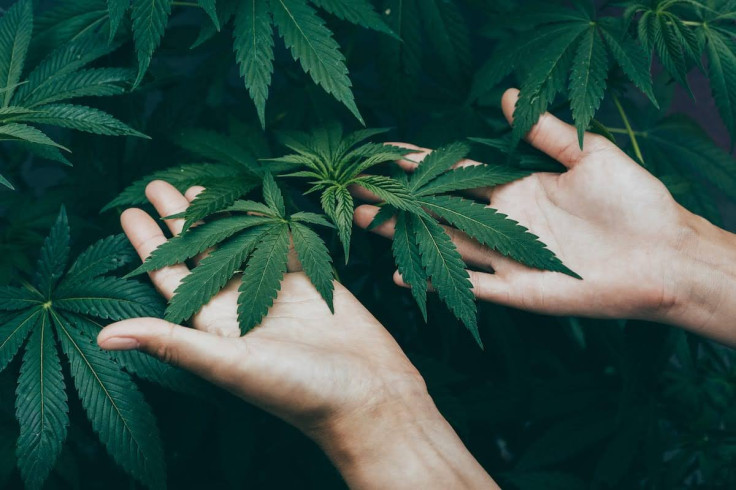What Is the Difference Between CBD and CBG?
What Sets These Cannabinoids Apart—and How to Choose the Right One for You

As interest in natural wellness grows, cannabinoids like CBD (cannabidiol) and CBG (cannabigerol) are becoming more popular in health and wellness products. Both compounds are derived from the hemp plant and share some similarities, but they also have distinct differences that affect how they work and what they can do for the body.
This article discusses the key differences between CBD and CBG, how they interact with the body, their benefits, and why CBD gummies are a popular way to enjoy these compounds.
Understanding Cannabinoids
The cannabis plant contains over 100 naturally occurring compounds called cannabinoids. These interact with the body's endocannabinoid system (ECS), a complex network of receptors that regulate various physiological processes like mood, sleep, appetite, and immune response.
Among these cannabinoids, CBD and CBG stand out due to their therapeutic potential and non-psychoactive nature, meaning they won't get you 'high' like THC (tetrahydrocannabinol).
What Is CBD?
CBD is one of the most abundant cannabinoids in the hemp plant. It has been extensively researched for its potential to support:
- Stress and anxiety reduction
- Pain and inflammation relief
- Improved sleep
- Neuroprotective properties
CBD interacts indirectly with ECS receptors, helping the body maintain balance (homeostasis) without producing intoxicating effects. It's commonly available in various forms, including CBD oils, gummies, topicals, and capsules.
What Is CBG?
CBG is often referred to as the 'mother of all cannabinoids' because it's the precursor from which other cannabinoids, including CBD and THC, are synthesised. CBG exists in smaller quantities in most cannabis strains, making it rarer and expensive to extract.
Like CBD, CBG is non-psychoactive. However, it binds more directly to ECS receptors, especially the CB1 and CB2 receptors, potentially resulting in more noticeable physiological effects. Early research suggests CBG may help with:
- Inflammation and chronic pain
- Glaucoma (by reducing intraocular pressure)
- Appetite stimulation
- Neuroprotection
- Antibacterial effects, especially against MRSA
Key Differences Between CBD and CBG
While both CBD and CBG offer potential wellness benefits and interact with the ECS, they do so in different ways. Here's a breakdown of their primary differences:
1. Chemical Structure and Origin
- CBD is derived from CBDA (cannabidiolic acid).
- CBG originates from CBGA (cannabigerolic acid), the starting point for other cannabinoids. CBGA converts into CBDA, THCA, and other acids as the plant matures.
2. Interaction with Receptors
- CBD interacts indirectly with ECS receptors, modulating receptor activity and supporting balance.
- CBG binds directly to CB1 and CB2 receptors, potentially leading to more substantial or faster-acting effects.
3. Availability in Plants
- CBD is found in much larger quantities in hemp, making it more accessible and affordable.
- CBG is typically present in much smaller amounts (often less than 1%), although some strains are bred to contain higher CBG levels.
4. Therapeutic Potential
- CBD is well-known for its calming and anti-inflammatory properties, and it's widely used to support sleep, anxiety relief, and pain management.
- CBG is being studied for more specific therapeutic uses, including antibacterial applications, neurological disorders, and eye health.
Can You Take CBD and CBG Together?
Yes, taking CBD and CBG together may enhance their benefits through what is known as the 'entourage effect.' This theory suggests that cannabinoids work better in synergy than in isolation, potentially amplifying their therapeutic effects.
Many wellness products now include CBD and CBG to offer a more comprehensive range of support. This combination is especially popular in full-spectrum and broad-spectrum formulas.
Why CBD Gummies Are a Great Choice
CBD gummies are one of the most popular and enjoyable ways to consume CBD. They're convenient, discreet, and tasty, making them ideal for beginners and experienced users.
Here's why CBD gummies stand out:
1. Precise Dosage
Each gummy typically contains a pre-measured dose of CBD, making it easy to control your intake.
2. Long-Lasting Effects
Because gummies are digested, CBD is released slowly over time, providing longer-lasting relief compared to other methods like vaping.
3. Travel-Friendly and Discreet
Gummies look like regular candy, so they can be taken without drawing attention. They are perfect for work or travel.
4. Variety of Formulations
You can find CBD gummies infused with other cannabinoids like CBG, or enhanced with melatonin for sleep, turmeric for inflammation, and more.
CBD vs CBG: Which One Should You Choose?
Your choice between CBD and CBG will depend on your wellness goals:
- Choose CBD if you're looking for help with anxiety, sleep, general pain relief, or daily wellness.
- Choose CBG if you're seeking targeted support for conditions like inflammation, eye pressure, or antibacterial needs.
That said, you don't have to choose one over the other. Many users prefer products that contain both CBD and CBG to leverage their combined effects.
Are There CBG Gummies?
Yes, CBG gummies are becoming more common as demand for this lesser-known cannabinoid grows. Like CBD gummies, they offer a flavorful, easy-to-use option for incorporating CBG into your routine.
Some brands even offer CBD + CBG gummies, which combine the best of both cannabinoids in a single product, ideal for users looking for maximum benefits from the entourage effect.
Final Thoughts
CBD and CBG are both powerful, non-psychoactive cannabinoids with unique properties. While CBD is more widely available and known for its calming and balancing effects, CBG offers exciting potential in areas like neurological support, antibacterial activity, and appetite regulation.
Whether you prefer CBD gummies for their convenience and flavour, or you're interested in exploring CBG for its emerging benefits, the key is to find high-quality, lab-tested products that suit your wellness goals.
Always consult a healthcare provider before starting any new supplement, especially if taking other medications. As research into cannabinoids continues to grow, products containing CBD and CBG will likely become even more refined and practical.
© Copyright IBTimes 2025. All rights reserved.





















